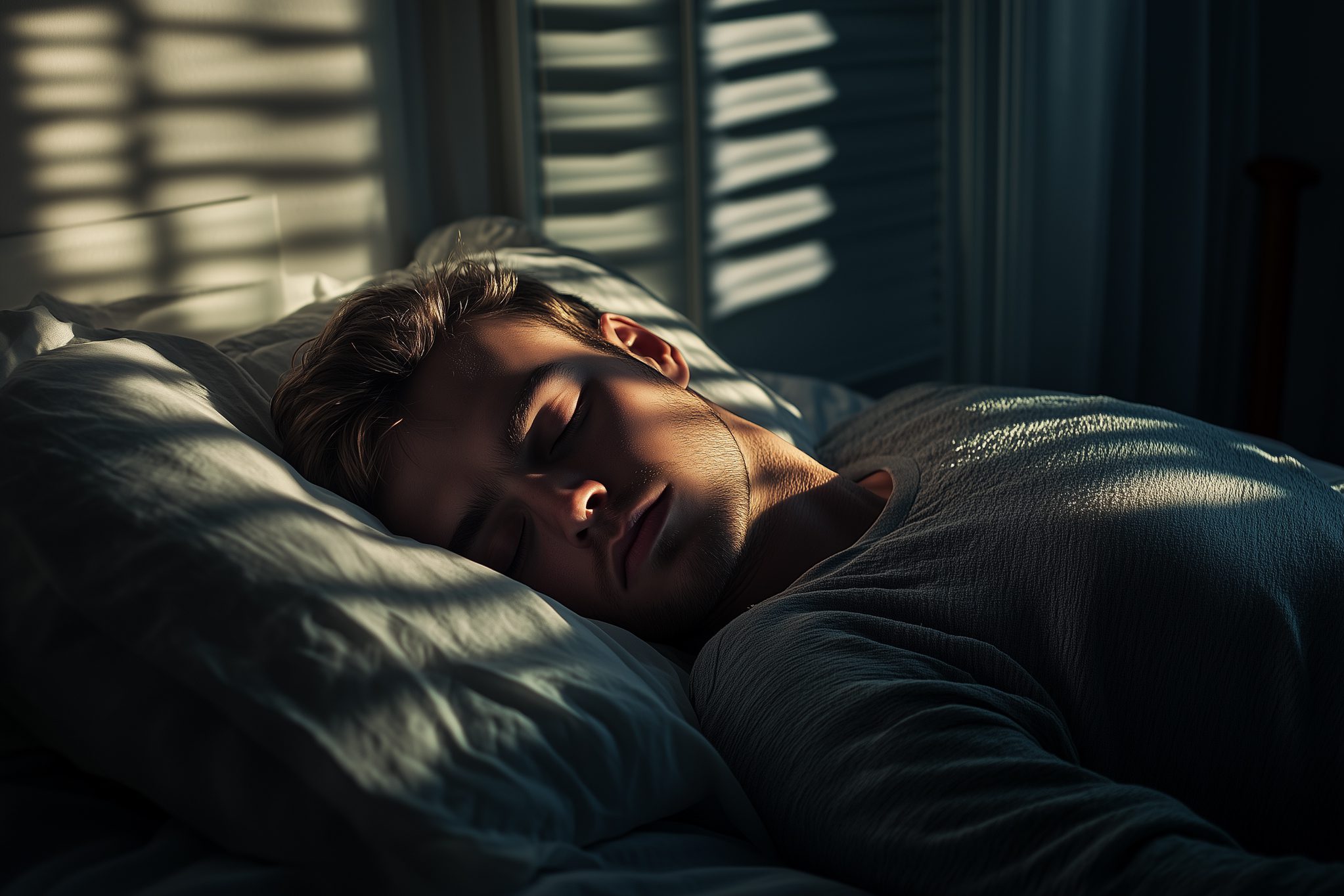
Oversleeping as a Sign of Depression: What You Need to Know
Discover how oversleeping can be a sign of depression, its causes, health impacts, and ways to address it.

Did you know that oversleeping is a sign of depression? While it is considered an uncommon symptom—alongside that of overeating and weight gain—it is still a notable sign that you might be experiencing symptoms of major depressive disorder. Atypical depression typically includes oversleeping and overeating as signs of having the disorder. However, many people are still not totally aware of what it means if they present this symptom themselves.
If you’re curious about oversleeping and its ties to depression, keep reading. In this article, we’ll explore the connection between oversleeping and depression, the causes of oversleeping, how this impacts your health, and how you can take steps to improve your mental and physical health to avoid oversleeping. Before we get into all that, let’s first look at what research says about this connection.
Oversleeping Is an Indicator of Atypical Depression
While many people think that depression might be linked to sleep disorders like insomnia, it’s actually overeating that is linked to insomnia, not oversleeping. On the other hand, oversleeping is seen as a common sign of atypical depression, with average subjects in one study getting up to 8.5 hours of sleep as compared to those with generic depression. Those who only have depression rather than atypical depression got 6.5 hours of sleep.
The reason that oversleeping or hypersomnia is linked to atypical depression is because of the fact that many with this mental health diagnosis end up presenting what are known as “vegetative symptoms,” which can include either under or oversleeping or eating. In the long term, this can contribute to decreased energy, feelings of worthlessness, and even challenges in terms of cognition.
This might be shocking, as many assume oversleeping would make someone more lively rather than fatigued. However, considering that we only need about seven to nine hours of sleep per night, oversleeping can mess with our sleep cycle. However, to truly solve this problem, we have to understand what causes oversleeping and its impact on our health.
What Causes Oversleeping When People Have Atypical Depression?
You might be surprised by what research says about the causes of oversleeping. It’s not just about how tired we are or the fact that we need more sleep sometimes. Oversleeping is caused by rejection sensitivity, which can lead to dysregulated emotional and self-consolatory problems. In other words, when we are rejected, we may take it in such a way that we struggle to feel energized, and our entire body needs more rest as a result.
Additionally, our depressive state and the current neurochemical imbalances might be to blame for our oversleeping. It is well known that depression causes specific chemical imbalances that make it harder for us to be more positive. We may even want to sleep more because we want to escape our current circumstances or because we take certain medications, which cause our bodies to require even more sleep. Some antidepressants can make us sleep even longer. Truthfully, it’s hard to pinpoint one exact reason as to why we oversleep, but we know the impact that it has on our health.
How Oversleeping Impacts Our Health in the Short and Long Term
While we might think that oversleeping is beneficial for us, it can actually be harmful if left unchecked. The more that we sleep, the more likely we are to encounter specific health problems. It’s true that under-sleeping is more damaging to our efforts to maintain a healthy body weight and blood pressure, but oversleeping does come with its challenges.
Researchers have shown that oversleeping is associated with tobacco smoking and poor perceived mental and physical health. Additionally, those who oversleep, specifically young adults, may also have higher rates of injuries and reproductive health problems, and they may also have a higher likelihood of aggravated sleep problems in the future. Ultimately, what this shows is that oversleeping might not have the same harmful effects as losing sleep, but you can still see the damage done to your overall health in the long term.
We also can’t forget the fact that oversleeping can make it harder for you to take care of your daily responsibilities. You can get too tired from sleeping too much, making it harder for you to socialize, exercise, work, and even spend time with friends and family. What this shows is that your oversleeping might be helping you now as you cope with atypical depression, but in the long term, it can lead to worsened symptoms and altered lifestyle factors.
How to Overcome Oversleeping and Address Atypical Depression
If you feel that you’re sleeping too much, it’s essential to take steps to help yourself recover and lead a healthier lifestyle. For instance, if you’re too tired all the time, lack motivation in the morning, and struggle with getting up, it might be time to seek help and support from those around you. Here are some steps you can take to promote better health and sleep in the future:
- Contact a Health Professional: With atypical depression and oversleeping, it’s never a bad idea to get in touch with a professional. Contact a mental health professional or another trusted primary care provider for support. They can help you get diagnosed and understand more about your situation.
- Engage in Therapy: Whether you choose to do psychotherapy or pursue medicated treatment, you can find ways to support your mental health. Cognitive behavioral therapy is a great choice to dive deep into the root of your depression, but you may also benefit from medication that can help you overcome oversleeping.
- Make Appropriate Lifestyle Changes: For those who feel that it could be rooted in their lifestyle, make some adjustments to your day-to-day life. Practice good sleep hygiene, get regular exercise, eat healthy, and engage in mindfulness and relaxation techniques to ensure that you support your health and well-being now and into the future.
With these steps, you can support your health and well-being and continue to live a healthy, fulfilling life. If you know someone who may have depression and be oversleeping, offer your support and help them seek the support that they require.
How Will You Overcome Oversleeping to Promote Your Longevity?
Now that you know the dangers of oversleeping, it’s essential to take steps to limit this behavior to reduce your symptoms of atypical depression. We hope that this article taught you something new about depression and its connection to sleep health! What steps will you take to promote your health in the future?

Written by
Marie Soukup
Marie Soukup is a seasoned copywriter, editor, and Integrative Nutrition Health Coach with a certificate from the Institute of Integrative Nutrition (IIN). With years of experience working with brands across diverse industries, Marie is passionate about holistic health and crafting compelling content.
Download Pillow
Get help
Press & News
Legal
Connect
X (Twitter)
Company
Copyright © Neybox Digital Ltd.



